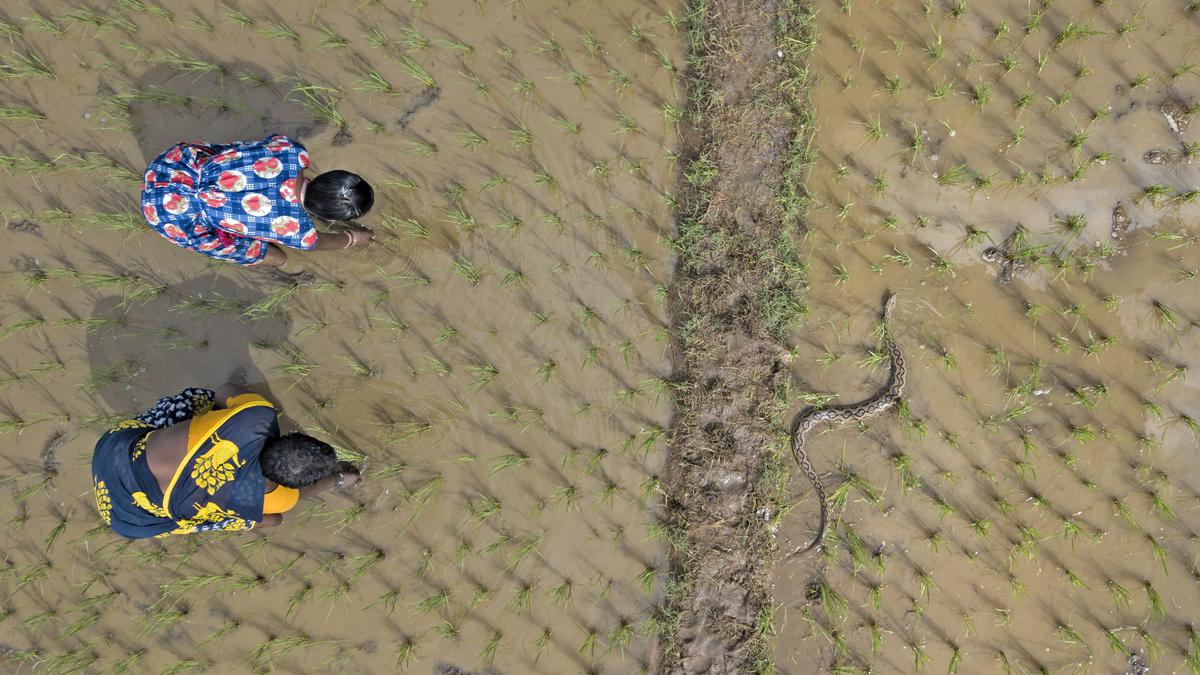
Madras Crocodile Bank Trust and its partner NGOs in India working to raise awareness on snakebites
The Hindu
Madras Crocodile Bank Trust in association with NGOs across India celebrated five years of International Snakebite Awareness Day (September 19) by raising awareness on the impact of snakebite
In India, we have nearly 300 species of snakes, most of which are harmless. But there are some deadly ones that kill thousands of people. These snake bites can be avoided. While 15 species of snakes kill humans, just four of them account for the majority of deaths in India – Russell’s viper, saw-scaled viper, krait and spectacled cobra.
The World Health Organization estimates that between 81,000 and 1.38 lakh people around the world die each year from snakebite and up to four lakh are permanently disabled or disfigured as a result of being bitten by venomous snakes. In India alone, 58,000 people die due to snakebites making it the snakebite capital of the world.
“Knowing the habits of these snakes and taking steps to avoid encounters with them can save many many lives,” says award-winning wildlife conservationist Romulus Whitaker, founder of Madras Crocodile Bank Trust (MCBT).
A short film by MCBT called Four Deadliest Snakes of India – A Survival Guide highlights how learning about these snakes can mitigate the problem of snakebites to a large extent. “For several centuries, humans have been living with snakes. Snakes were looked down upon as evil and vengeful creatures, mainly due to the myths that revolve around them. On most occasions, when people come close to snakes the consequences could be fatal for both,” says Ch Gnaneswar, Project Lead at the Madras Crocodile Bank.
On September 19, a coalition of organisations working on global health and snakebite prevention around the world, including Madras Crocodile Bank Trust and Centre for Herpetology celebrated five years of International Snakebite Awareness Day with an aim to raise awareness on the huge, yet mostly unrecognised, global impact of snakebite.
Over the past two years MCBT has been working in collaboration with other NGOs and herpetologists to carry out educational programmes in Andhra Pradesh, Bihar, Jharkhand, Madhya Pradesh, Maharashtra, Odisha and Tamil Nadu and the north-east – all of which are prone to snakebites.
On a cloudy morning in Visakhapatnam in Andhra Pradesh, a classroom brimming with enthusiastic students watch with keen interest a documentary on the most venomous snakes of India. This is followed by a session where the students identify snake species through pictures displayed by a team of naturalists. The programme is one among the many being conducted by the Wildlife Conservation Through Research and Education (WCTRE) and AP Forest Department in collaboration with MCBT to spread awareness on snakebites. “All together, around 850 students from schools and colleges and the residents of Madugula village were briefed in detail about the diversity of snakes in Visakhapatnam, their nature of venom and measures to respond to snakebites,” says Yagnapathy Adari, project scientist of Kambalakonda Wildlife Sanctuary.













